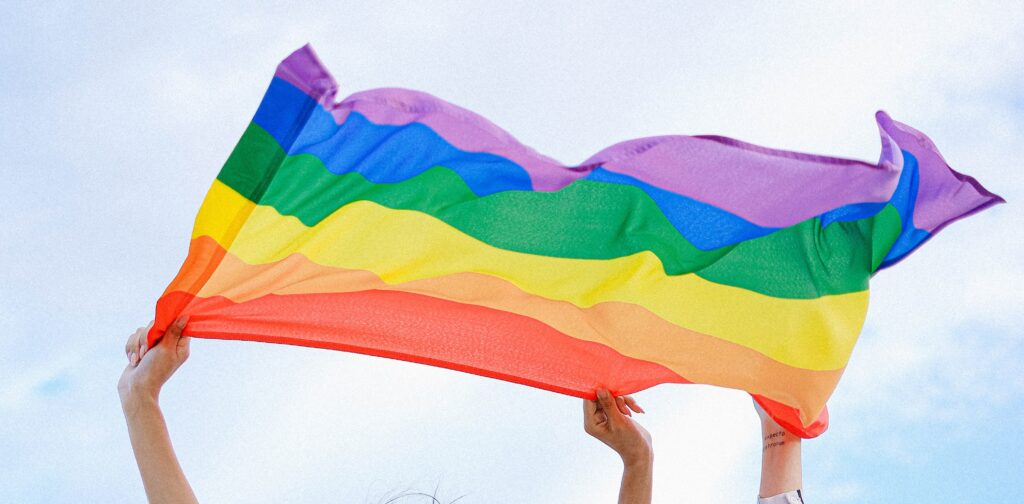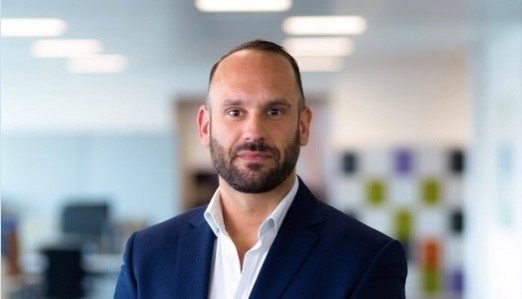
With Pride month drawing to a close, we spoke with Executive MBA (2021) alumnus Richard Lane, Director of External Affairs at StepChange, on the importance of LGBT+ inclusivity in the workplace and his experiences at Cambridge Judge Business School.
What is your career background?
“I’ve spent most of my career in the political and not-for-profit sector. I’m currently Director of External Affairs at the UK’s leading debt advice provider, StepChange. We help about 500,000 people every year with their financial problems and, as I’m sure you can imagine, it’s an incredibly busy time for us at the moment. The cost of living crisis is having a huge impact on people’s finances. Sadly, millions of households are really struggling, with many people living in poverty and simply not able to afford the essentials.
Before this role I’ve been lucky enough to work for some great causes. I was Head of Communications and Campaigns at Scope, the disability charity, and have previously overseen the media, campaigns and public affairs at the LGBT charity Stonewall. That was an amazing opportunity and I got to work on some big campaigns like marriage equality and the charity’s ‘Rainbow Laces’ campaign to tackle homophobia in football.
Prior to the not-for-profit sector I worked in politics, both in Westminster and on the 2008 Presidential campaigns of firstly Hillary Clinton and then later Barack Obama.”
What made you decide to study an Executive MBA at Cambridge Judge Business School?
“I wanted to study an EMBA to really challenge myself and in particular to strengthen my skills and knowledge in areas that aren’t necessarily my ‘day-to-day’ or my natural areas of experience. Things like finance, corporate accounting and managing big transformation projects. I also wanted to build my network outside of the charity sector and, honestly, just do something new and exciting. I haven’t studied in many years so pushing myself was a real motivation. I think it’s fair to say it delivered on that front!”
What extra qualities do you think you were able to bring to your cohort?
“The cohort was fantastic and it was just a really amazing opportunity to meet and learn from people from across different sectors. I hope my background in the charity sector and my views as an LGBT person brought a different perspective and challenged some of the topics we discussed. I was always keen to try to add different perspectives in debates around equality, diversity and inclusion which often focussed on gender and nationality – those are, of course, vital conversations, but we live in a hugely active and transformational moment in time. Debates around trans people’s lives, for example, are becoming highly politicised and often very toxic. We need to support trans people to feel safe and supported. It’s important that students at places like Judge Business School are having conversations about how we do that.”

Why do think it is important that the workplace is inclusive for the LGBT+ community?
“For me it’s always been really simple – it’s both the right thing to do to support your staff and promote inclusion, but it’s also just good business sense.
There is ample evidence that workplaces that embrace inclusion and promote diversity perform better across a whole swathe of metrics. It will allow you to recruit from a wider talent pool and find people who think differently and see the world differently. LGBT people don’t have a singular experience or viewpoint, but many people have faced struggles, they understand what it’s like to be an outsider or to have had to hide themselves. This gives a different perspective on the world that can challenge thinking and spur new ways of doing things.
And ultimately, if you have LGBT staff (and in any organisation bigger than just a handful of people – you will!), every ounce of their energy spent hiding themselves, not being authentic, not bringing their whole self to work, is just wasted effort and energy. It’s headspace and time spent not focussing on their role and not being their best. What a waste, right?”
Are there any challenges you’ve experienced in the workplace?
“I’ve been very lucky in the workplace and have always been able to be open at work. But that doesn’t mean you don’t spend time thinking about how you’ll be perceived and how safe a space is for you to be yourself. Particularly in external meetings or when travelling, you can find yourself second guessing yourself and questioning how open you should be.
The charity sector, I think, on the whole is a pretty welcoming and inclusive place and I know that my current organisation has a high percentage of staff who identify as LGBT.
I also recognise that I’m lucky. Stonewall stats suggest that about a third of staff hide who they are at work, one in five people have been on the receiving end of negative comments or abuse because of their sexual orientation and others have faced regular bullying. We’ve certainly come a long way, but there’s always more to do.”
What is your current company, StepChange, doing to promote inclusion?
“I’m really pleased that we’ve made some real progress. Last year we launched our first ever Equality, Diversity & Inclusion strategy which I am one of the Executive sponsors for. It sets out some pretty ambitious goals to support our colleagues and hire more diverse new recruits. We also make sure we’re regularly marking events and themes like Pride, Internal Women’s Day, Disability History month and key moments that highlight our commitment to all staff.
What steps did Cambridge Judge Business School take to make you and other members of your community feel included during your studies?
I think like most business schools, CJBS recognises that there’s more to do to attract a diverse pool of talent. But it’s clear they’re taking it seriously. We had a lot of conversations in our cohort about gender diversity and CJBS made some significant commitments to working in this area. It’s also always great to see CJBS and the wider university highlight events like Pride and I know that pretty much every college has an active LGBT+ society to support students.”
Do you think the workplace has become more inclusive of LGBT+ people over recent years and what steps could be made by companies/business leaders to continue to improve?
“I think there’s been huge progress. I’m 38 now, and it really wasn’t that long ago (certainly in my life time) that you could be fired because you’re gay. It wasn’t until I was in my 20s (2005) that civil partnerships even existed and it wasn’t until 2013 that you could marry your partner.
People should be under no illusion that there is a concerted and very real effort to role back this progress. Attacks on trans people’s rights and dignity, whipping up culture war battles around drag queens and vile attacks seen on LGBT people, with a rise in hate crimes, is a threat to the LGBT community and something that is making people feel really fearful. Progress is never inevitable and once won, isn’t secure. It also can’t be won and protected just by LGBT people. We need straight allies – our bosses, our Executives, our CEOs, our Boards – to support us. Not just during Pride month. Or when it’s nice to pop a rainbow flag on your logo. But all year round, especially when the going gets tough.
I think Britain has been a beacon for equality around the world and has made real progress. And that’s been reflected in workplaces. Many organisations now actively celebrate Pride, have LGBT networks and make it clear they support their LGBT staff. That’s fantastic.


Leave a Reply